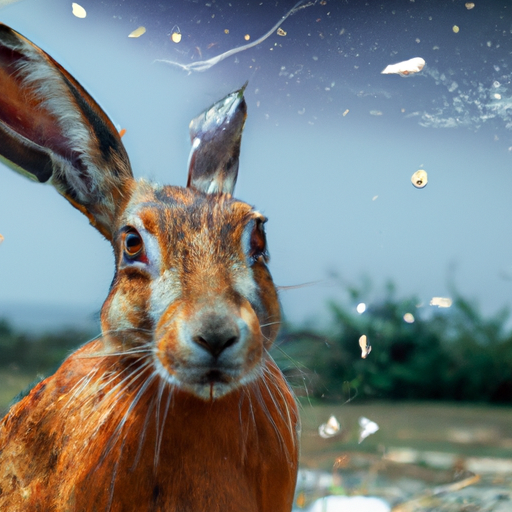 Introduction:
Introduction:
The animal kingdom is a diverse and captivating realm, where creatures display a remarkable array of behaviors and adaptations. Among these behaviors, one of the most intriguing phenomena is when animals demonstrate the ability to ask for help. This extraordinary ability challenges our perceptions of animal intelligence, communication, and empathy. In this comprehensive article, we will delve into the fascinating world of animals seeking assistance, exploring the diverse ways in which various species communicate their needs, the potential underlying motivations, and the implications for our understanding of animal cognition.
Section 1: Communication in the Animal Kingdom
1.1 Evolution of Communication: To understand the concept of animals asking for help, we must first explore the evolutionary origins of communication among various species. From simple vocalizations to complex body language, animals have evolved diverse communication systems to convey information.
1.2 Animal Communication Channels: Animals utilize a wide range of communication channels, including visual displays, vocalizations, chemical signals, and tactile cues. Each species has its unique repertoire of signals that convey specific messages, allowing them to interact effectively within their social groups.
Section 2: The Phenomenon of Animals Seeking Help
2.1 Animals as Problem Solvers: Instances of animals seeking assistance suggest a cognitive ability to recognize and attempt to solve problems that they cannot overcome independently. Such behaviors challenge the traditional notion of animals solely relying on instinct.
2.2 Examples from the Wild: This section will present a variety of fascinating examples from different ecosystems, highlighting instances where animals have been observed asking for help. From elephants coordinating rescues to dolphins saving stranded companions, we will explore extraordinary stories that emphasize the complexity of animal interactions.
Section 3: The Motivations behind Seeking Help
3.1 Survival and Protection: Animals often seek help to enhance their survival chances or protect their vulnerable young. Cooperation, mutualism, and reciprocal altruism can play crucial roles in fostering such behaviors.
3.2 Social Bonds and Empathy: Many animals, particularly those with complex social structures, display empathy and emotional bonds. This section will explore how these factors motivate animals to help each other, even across species boundaries.
Section 4: Understanding Animal Cognition and Intelligence
4.1 Cognitive Abilities: By examining the capacity of animals to recognize and respond to complex situations, we gain insights into their cognitive abilities. The ability to ask for help showcases problem-solving skills, memory, and a level of self-awareness.
4.2 Comparative Studies: Comparative studies between animals asking for help and human communication systems provide valuable insights into the underlying mechanisms of animal cognition. These studies shed light on the commonalities and differences between our species and other intelligent beings.
Section 5: Ethical Considerations and Conservation Implications
5.1 Ethical Perspectives: Recognizing animals’ capacity to ask for help raises ethical questions regarding our responsibilities towards them. This section will explore the ethical implications of our interaction with animals and the moral obligations that arise from understanding their cognitive abilities.
5.2 Conservation Relevance: Understanding the cognitive and communicative capacities of animals can have significant implications for wildlife conservation efforts. By recognizing the richness and complexity of animal behavior, we can develop more effective strategies to protect and preserve their habitats.
Conclusion:
The phenomenon of animals asking for help offers a captivating glimpse into the intricate world of animal communication, cognition, and empathy. By studying these behaviors, we gain a deeper appreciation for the intelligence and social dynamics of various species. Furthermore, these observations challenge our existing paradigms and emphasize the importance of respecting and conserving the natural world. As we continue to uncover the intricacies of animal behavior, let us strive to foster a greater understanding and compassion towards the remarkable creatures that share our planet.
